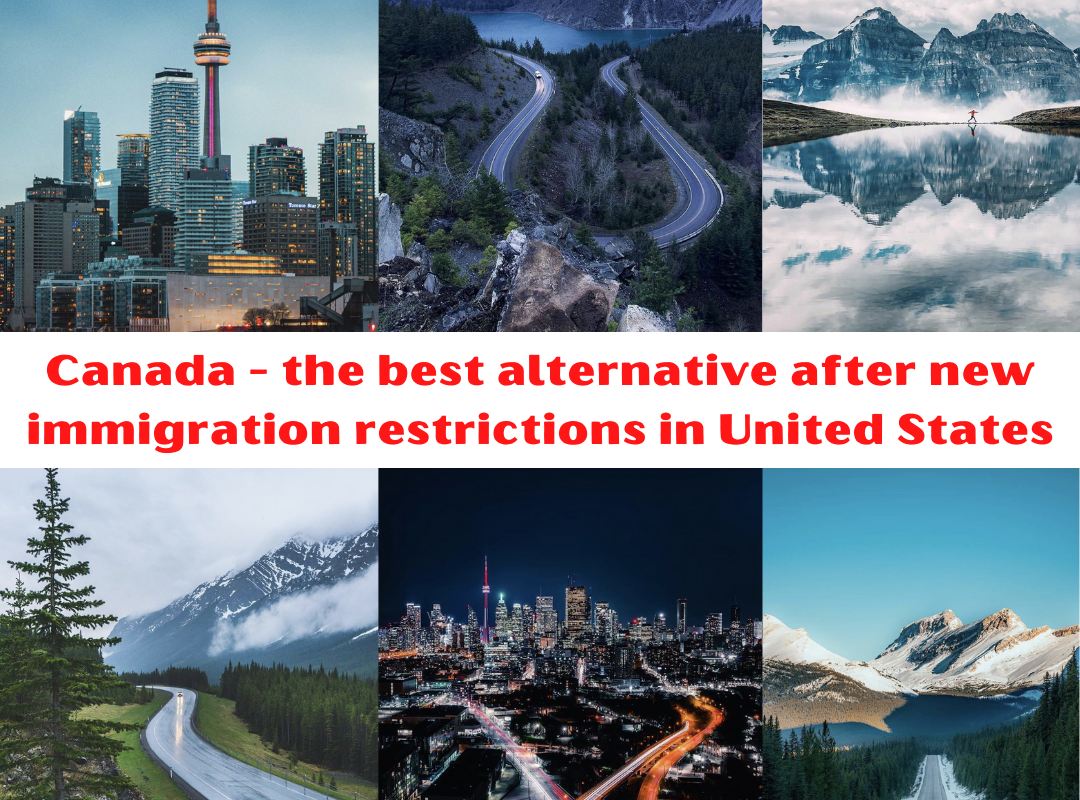Canada’s immigration department has issued new guidelines that allow individuals with expired Confirmation of Permanent Residence (COPR) and Permanent Resident Visas to travel into the country. Immigration, Refugees & Citizenship Canada (IRCC) have issued different policies for holders of expired visas depending on whether they are traveling from the U.S. or other countries.
In order to qualify for the new guidelines, individuals outside the U.S. should have obtained their visa on or before March 18, while U.S. visa holders qualify irrespective of when they received their visa. Individuals intending to travel to Canada temporarily for optional or discretionary purposes, such as tourism, recreation and entertainment are not permitted under the exemptions. At the moment, only those individuals who wish to stay and settle as permanent residents in Canada are exempted from travel restrictions.
Group 1: Travelers from any country other than the U.S. with Valid COPR and PRV
The applicants who were issued COPR and PRV on or before March 18 fall under this category. They are exempted from travel restrictions, allowed to travel to Canada for non-discretionary reasons even with expired documentations and have to follow the mandatory 14-day quarantine plan.
Group 2: Travelers from the U.S. with Valid COPR and PRV
This group includes applicants from the U.S. who wish to travel to Canada for non-discretionary purposes; to settle and dwell in Canada. These travelers should have approved application status, with valid COPR and PRV, and should have an appropriate plan to quarantine for 14 days.
Group 3: Travelers from any other country other than the U.S. with Expired COPR and PRV
Group 3 comprises applicants who are ready to travel to Canada for permanent residence with possession of an expired COPR and PRV. These applicants are required to contact IRCC using a web form where they need to provide expiry date of COPR and legitimate non-discretionary reasons for travel. Candidates will be directed to the suitable processing network after the web forms are received.
Group 4: Travelers from the U.S. with Expired COPR and PRV
This group consists of people travelling from the U.S. to Canada for non-discretionary reasons and wish to settle as permanent residents with expired COPR. The candidates need to submit a proof of approved application, and an acceptable quarantine plan for 14 days along with COPR and PRV documents.
Things to do for holders of expired COPR and PR visas
IRCC will prioritize clients with a detailed proposed or confirmed travel plan, or clients who show a willingness to book and confirm travel plans as soon as they are approved. Applicant and accompanying family member must meet the following eligibility criteria:
- A valid COPR and PRV on or before March 18, 2020 and no specific date for U.S. based applicants or an expired COPR and PRV
- A persuasive travel reason like need to tend to non-discretionary family matters, family reunification, need of immediate medical care, expiring status in the U.S. for economic reasons such as to support economic services and supply chains, critical infrastructure support
- The country where you reside is not subject to exit controls that limit your ability to travel to Canada
Applicants should provide proof of the following:
- An acceptable plan to quarantine for 14 days in Canada including proof of funds for purchasing groceries, medical care among other essential services;
- An acceptable plan to settle such as documents to support your living situation in Canada (address, lease agreement, home ownership document) or employment plans in Canada (location of work, letter from employer);
- A proposed travel itinerary, including pre-purchased travel tickets
Processing of new permanent residence applications
New applications for permanent residence are currently accepted in Canada. New files with missing documents or are incomplete will be retained and reviewed within 90 days. Nevertheless, an explanation should be added to the application referencing service interruptions due to coronavirus-related travel restrictions if a new application lacks supporting documentation. If the explanation is vital, it may result in the application being promoted and reviewed within 90 days. New applications will be processed in the receiving order. normal procedures will be followed for new completed applications for permanent residence.


